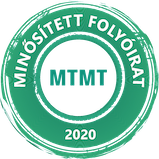A Történeti magyar családnévatlasz előmunkálatairól
Absztrakt
Preliminary studies on the Atlas of Hungarian Historical Family Names
In synchronic and diachronic surveys of family names, digital atlases have recently become extremely important tools, as they can provide information on the spatial distribution, localization, and dialect differences of names and name variants. European onomastics has already produced some very impressive works in the field, and Hungarian onomastics should also join the trend. In Hungary, the current synchronic surveys on family names face several questions to which adequate answers can only be gained from investigations into historical changes. The first steps to build the database of the Hungarian historical personal names have already been taken. The present database contains the 166,000 names of the first national census in 1715. The name corpus provides an opportunity for several linguistic, onomastic and interdisciplinary enquiries, some of which are described in the paper: 1) Lexical cartograms are used to examine the regionality of the names in order to reveal extralinguistic factors (migration, economic and social relations, etc.), adopting an interdisciplinary approach. 2) Personal names as elements of the language display dialectal, phonetic, morphological and lexical features; thus, their analysis provides us with valuable insights into historical dialectology. 3) Identifying the name-etymons helps us to find out the distribution of the linguistic origin of the relevant name stock, which might serve as an indirect source of historical demographic research to reconstruct contemporary ethnic conditions. 4) In name systemic investigation, the mapping and analysis of the regionality of certain family-name types are carried out. Morphological enquiries are aimed at discovering the geographical characteristics of certain formants (derivative suffixes) and variants.




